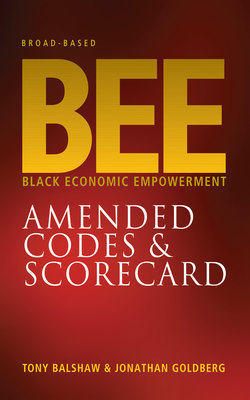Читать книгу Broad-Based BEE - Jonathan Goldberg - Страница 23
На сайте Литреса книга снята с продажи.
Оглавление| 2 | REAL BROAD-BASED BEE ISSUES |
“For small and family businesses, broad-based black economic empowerment is a frightening prospect: if they don’t become empowered, their business will shrink, perhaps even die; but most have little to offer to attract potential empowerment partners, even if they knew where to find them.” – Financial Mail
Already buckling under new laws and regulations, many see BEE as another compliance cost and the far reaching amendments to the Codes, particularly majority (51%) black ownership as moving away from the broad-based to narrow BEE. Coupled to this are the substantially increased qualification requirements for the 8 BEE Recognition Levels and onerous Scorecard criteria across Priority Elements. There are also numerous grey areas, errors and ambiguity that have been created by the Amended Codes coupled with the failure to address the errors and anomalies in the original Codes.
The Amended Codes are hugely complex and, for some businesses, probably raise more questions than they provide answers. Many who have implemented BEE transformation probably fall short in relation to the Amended BEE Codes of Good Practice.
Reasons for the failure of broad-based BEE transactions have included:
•narrow focus on ownership control
•a lack of effective integration;
•divergent strategic objectives;
•incompatible corporate cultures;
•excessive imbalance between partners (“David and Goliath”);
•an unwieldy decision-making process;
•divergent financial objectives;
•a lack of trust between partners; funding, and
•complex financial structures.
